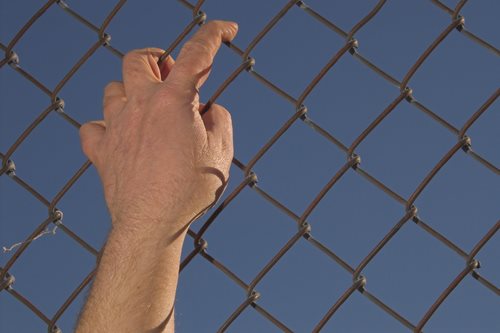Does Border Patrol Work?
Does Border Patrol Work?: Examining the Effectiveness of Border Patrol
Introduction:
The U.S. Border Patrol is responsible for securing the nation's borders and enforcing immigration laws. Over the years, the effectiveness of the Border Patrol has been a topic of debate among policymakers, experts, and the public. In this article, we will examine the effectiveness of Border Patrol by analyzing its mission, strategies, and outcomes.
Mission of Border Patrol
1. What is the mission of Border Patrol? The mission of Border Patrol is to detect and prevent illegal entry of people and contraband into the United States.

2. How does Border Patrol accomplish its mission? Border Patrol accomplishes its mission through the use of a variety of strategies, including surveillance, patrolling, intelligence gathering, and law enforcement operations.
Strategies for Border Patrol
1. What strategies does Border Patrol use to secure the borders? Border Patrol uses a variety of strategies to secure the borders, including the use of technology such as drones, sensors, cameras, and helicopters, as well as physical barriers such as fences, walls, and checkpoints.
2. What are the challenges of implementing Border Patrol strategies? The challenges of implementing Border Patrol strategies include limited resources, difficult terrain, and the ability of smugglers to adapt to new tactics.
📝 See Also
Outcomes of Border Patrol
1. What are the outcomes of Border Patrol efforts? Border Patrol reports that its efforts have led to a decrease in illegal border crossings, apprehensions of undocumented immigrants, and seizures of contraband.
2. How do experts view the outcomes of Border Patrol? Experts have varying views on the outcomes of Border Patrol, with some believing that the agency's efforts have been successful in reducing illegal entry, while others argue that the agency's strategies may have unintended consequences such as increased violence and human trafficking.
Conclusion:
The effectiveness of Border Patrol in securing the borders and enforcing immigration laws remains a controversial issue in the United States. While the agency has made significant strides in reducing illegal entry and apprehending undocumented immigrants and contraband, there are ongoing debates about its strategies and outcomes. As the United States continues to grapple with issues related to border security and immigration, it is important for policymakers, experts, and the public to examine the effectiveness of Border Patrol and explore new solutions to address these complex challenges.
Acting on behalf of the DHS, which stands for the Department of Homeland Security1. Incidences of corruption: Local law enforcement officers, which people may understand from personal experience or may get an idea of from popular media, are capable of wrongdoing along with their pledge to serve and protect. As officers at the local level are conscripted into service, it is not unreasonable to think that with the influx of both officers of the law and civilians, some instances of corruption might hit the Border Patrol.
USA laws, of course, dictate that any drugs carried by smugglers be confiscated upon being found at a port of entry by Customs or Homeland Security Border Patrol agents. Nonetheless, the temptation might be too much for some, and in exchange for not detaining an illegal entrant into the country, some agents might accept some of the illegal product he or she is carrying or a bribe to the look the other way.
2. Incidences of abuse: When one enlists to be an agent of the Border Patrol, they agree to put their political views and personal prejudices aside. Thankfully, most agents are able to put their ideologies and any ill will aside, or at least channel their feelings into proper administration of the law. Even so, people are human, and the Homeland Security Border Patrol does realistically have the potential to accept extremists, bigots and others who have a lower regard for human decency. Among the atrocities recorded of Border Patrol agents are racist comments, physical and sexual assault, and preventing immigrants from the right to food and health care - even if an individual is trying to get into the country illegally, his or her basic human rights cannot be denied.
3. Ineffectiveness of the system: Perhaps the strongest criticism, due to the sheer length of the northern and southern borders of the United States, it is impossible for every one of the aliens who violates our international borders to be caught by the Border Patrol; geographical statistics estimate the length of the border separating the United States and Mexico to be 2,000 miles in length, and the border separating Canada and the United States to exceed 4,000 miles.
Although the coverage ability of the Border Patrol cannot possibly cater to over 6,000 miles of land, technological security measures put in place have thus far found little success, as well. For instance, cameras set up at border crossings allow viewers over the Internet to be "virtual deputies," some of whom spend hours watching the feeds for evidence of an intrusion on American. Unfortunately for them and genuine agents, however, few illegal aliens have been apprehended as a result of this method.